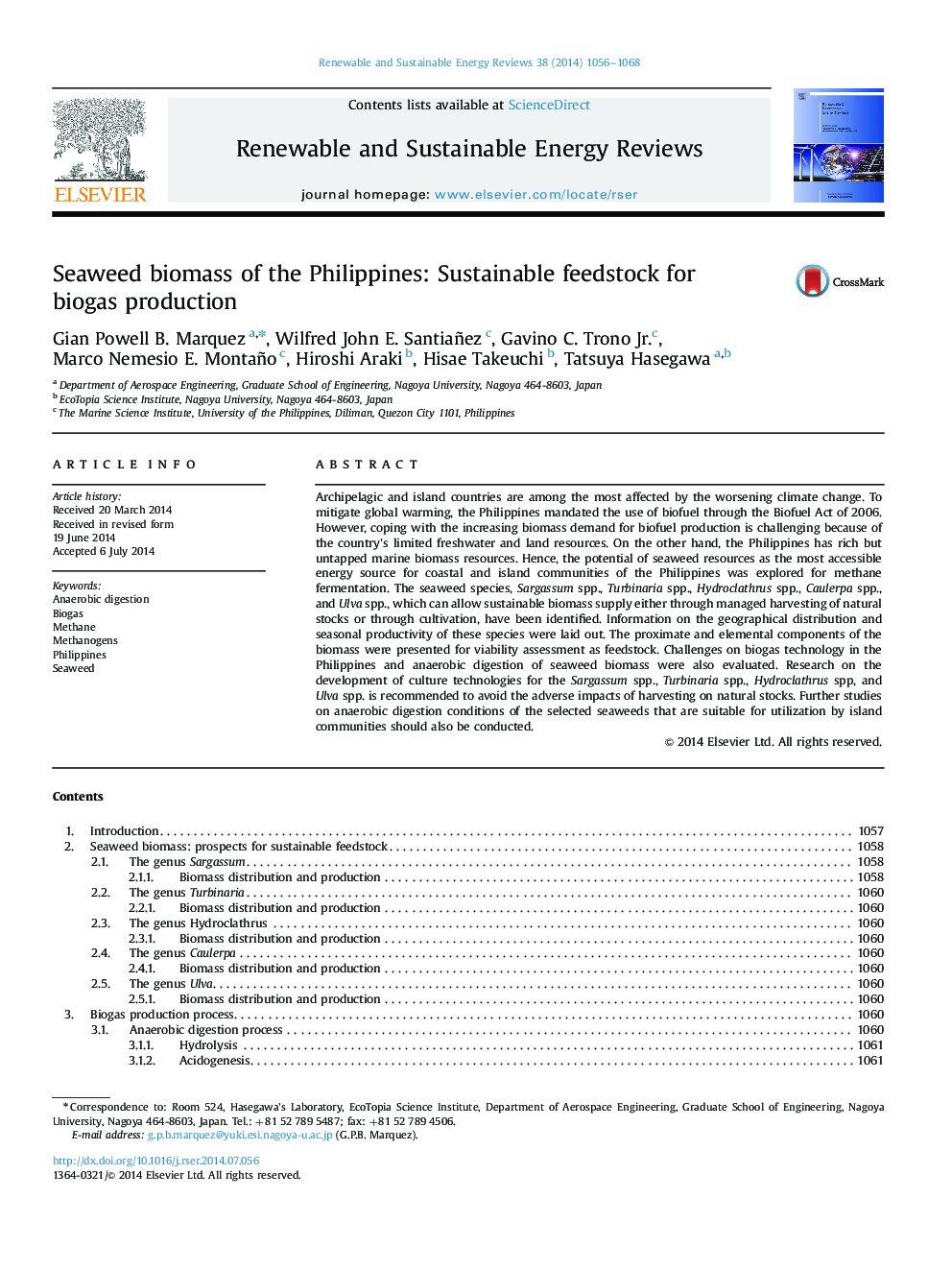| Article ID | Journal | Published Year | Pages | File Type |
|---|---|---|---|---|
| 8119898 | Renewable and Sustainable Energy Reviews | 2014 | 13 Pages |
Abstract
Archipelagic and island countries are among the most affected by the worsening climate change. To mitigate global warming, the Philippines mandated the use of biofuel through the Biofuel Act of 2006. However, coping with the increasing biomass demand for biofuel production is challenging because of the country׳s limited freshwater and land resources. On the other hand, the Philippines has rich but untapped marine biomass resources. Hence, the potential of seaweed resources as the most accessible energy source for coastal and island communities of the Philippines was explored for methane fermentation. The seaweed species, Sargassum spp., Turbinaria spp., Hydroclathrus spp., Caulerpa spp., and Ulva spp., which can allow sustainable biomass supply either through managed harvesting of natural stocks or through cultivation, have been identified. Information on the geographical distribution and seasonal productivity of these species were laid out. The proximate and elemental components of the biomass were presented for viability assessment as feedstock. Challenges on biogas technology in the Philippines and anaerobic digestion of seaweed biomass were also evaluated. Research on the development of culture technologies for the Sargassum spp., Turbinaria spp., Hydroclathrus spp, and Ulva spp. is recommended to avoid the adverse impacts of harvesting on natural stocks. Further studies on anaerobic digestion conditions of the selected seaweeds that are suitable for utilization by island communities should also be conducted.
Related Topics
Physical Sciences and Engineering
Energy
Renewable Energy, Sustainability and the Environment
Authors
Gian Powell B. Marquez, Wilfred John E. Santiañez, Gavino C. Jr., Marco Nemesio E. Montaño, Hiroshi Araki, Hisae Takeuchi, Tatsuya Hasegawa,
